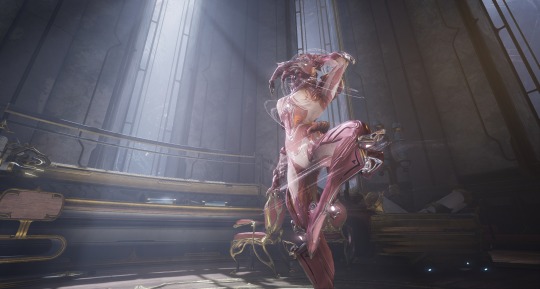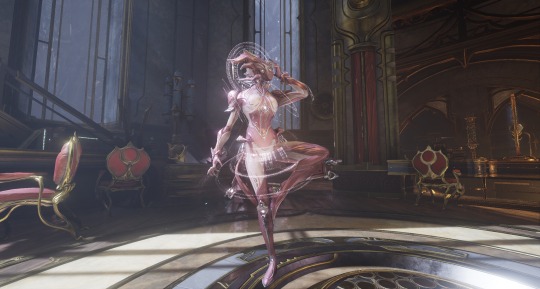#I had to kill nine Sisters for this ephemera
Text


5 notes
·
View notes
Text
TV Review: BBC Sherlock, Season 4
Heads up, this one is long and chock full of spoilers below the cut. TL;DR – As a long-time BBC Sherlock fan, I am disappointed with Season 4.
I will say upfront that I was able to largely enjoy each episode of Season 4 as I was watching it. The acting was still excellent, and there were certainly scenes and parts of episodes that were fantastic. But once I had seen them all and had a chance to step back and look at the season as a whole, I had more and more problems with it. Ultimately, I am disappointed in the writers for not really living up to their own standards, which they set quite high during the first three seasons.
To be honest, I was worried about this season from the moment that Moffat and Gatiss started making public comments that season 4 was going to be especially “dark.” My worries were not unfounded. Let me see if I can articulate what I mean.
Some stories (whether books, movies, or TV shows) are dark stories. By this, I would generally mean a story where the plot or overall context of the world the story is set in necessitate that bad things are going to happen to many of the characters: some of them may die or be killed; many will suffer violence, possibly very brutal violence, either physical or mental; they may have to make choices or do things that go against their beliefs; a happy ending is not guaranteed.
Season 4 of Sherlock certainly fits this definition. The problem is that, at least for me, the previous three seasons do not set this up. There is nothing in the first nine episodes of the series which necessitates the events of the last three, which is very problematic for the story as a whole.
I would contrast this with a story that is and is meant to be a dark story. I may not have a lot of really good examples here, since I do not myself prefer dark stories and don’t tend to watch/read many of them. From what I know of it, Game of Thrones probably falls into this category. I would categorize much of Anne Bishop’s writing (the Black Jewels series, the Ephemera trilogy) as darker stories, albeit set up so that any happy endings which do occur are earned and make sense in the context of the story. For both of those series, the characters are fighting civilization- or world-destroying levels of evil, and so the fact that a great deal of suffering occurs is expected and makes sense in the context of the story. In the realm of movies, V for Vendetta comes to mind. The characters are fighting a brutal dictatorship, and must become brutal themselves in many ways, in order to survive and accomplish their goals. Here again, the darkness of the story is expected, and fitting.
The Sherlock Holmes stories do not fall into this category.
There are dark moments, and dark things that sometimes happen, in any incarnation of the Sherlock Holmes stories – obviously, since they are detective stories often centered around trying to solve murders. But as a whole, the Sherlock Holmes universe is not a brutally dark universe, and that is not the tone that the stories take.
BBC Sherlock has been, from the beginning, probably a bit darker take on the series than the original stories were (although not by much, from my memory of reading them some years back). It is more realistic, in a way, being set in modern times, and there were certainly dark parts in the first three seasons (again, murders, plus a crazy criminal mastermind). None of that was a problem, because they still felt like Sherlock Holmes stories.
For whatever reason, Moffat and Gatiss decided that that was no longer good enough, and that season 4 needed to be “darker.” I strongly believe that this was a mistake, and indeed will always be a mistake for any story that is not already set up in a darker world or universe.
In order to achieve their goal of “darker,” the writers seem to have decided that the plot of season 4 should be “make John and Sherlock suffer as much as possible, in every way, conceivable or not.” This goal then trumped all other considerations, including (in my opinion): plot, characterization in general, meaningful character interaction in many cases, and proper closure of various storylines. (Here come the spoilers.)
As best I can tell, Mary Watson is killed (in this manner and at this point in the story) for the sole purpose of making John suffer, so that Sherlock has to suffer in order to get John back. John is (in a manner that struck me as extremely out of character) “unfaithful” to Mary by text-flirting with a random lady on the bus (which turns out to be a setup, of course, but that doesn’t change John’s choices). This out-of-character-ness seems to have been done mainly so that John can feel guiltier when Mary dies so that he can be angrier at Sherlock. John has to be angry at Sherlock so that Sherlock is forced to “go to hell” in order to convince John that he needs John’s help and John should come back to save him.
The character of Eurus, similarly, is introduced solely for the purpose of putting Sherlock, John, and Mycroft through hell in the last episode. She has no other presence in the story prior to this season (that I can recall, someone feel free to correct me if I missed something in the earlier seasons, which is possible), and no other purpose in the story at all.
(I should say that I don’t fundamentally have a problem with the introduction of a third Holmes sibling; the original stories do include a brief mention of a third brother, Sherrinford. Since we don’t actually know anything about Sherrinford, obviously the writers have some leeway in making up this third sibling character, and the gender-switch doesn’t particularly matter. ETA: Apparently, I am incorrect about Sherrinford being canon! My mistake. I'm now trying to remember why I did think it was canon.)
But to make her be a complete psychopath that Sherlock has utterly forgotten about? Whom Mycroft is idiotic enough to keep alive for years after it becomes clear that she is a danger to everyone around her? Who was somehow able to set up this twisted game for them to play, resulting in the deaths of yet more people, which Sherlock and Mycroft between them are not smart enough to get out of?
I’m sorry, but my suspension of disbelief only goes so high.
The first two episodes mostly make sense, inasmuch as they are predicated on what I consider to be the unnecessary event of Mary’s death. There are some continuity issues, specifically from the end of the first episode: Molly gives Sherlock a letter that John wrote him, and Sherlock goes to see John’s old therapist. Presumably these events have some kind of importance, but they are never mentioned again, and do not appear to have impacted the story at all. What was the point of those scenes? Still, the immediate plots of each episode can be followed, and the main mysteries are explained.
For me, at least (and I know I am not alone in this), the last episode does not make any sense.
The whole point of the Sherlock Holmes stories is that we are meant to get an explanation at the end; the mystery is meant to be solved. The Final Problem does none of that. How has Sherlock recovered from his addiction so quickly? How do he and Mycroft and John get out of the explosion at Baker Street without any serious injuries? Why does Sherlock (also rather out of character, in my opinion) ignore John’s “Vatican Cameos” warning? If the airplane is a metaphor/fantasy in Eurus’ head, then who is the little girl that Sherlock is actually talking to throughout her “game”? (Obviously there could be an explanation for this, but that explanation is not given to us, the viewers.) When Victor Trevor went missing, why on earth was a proper search not conducted for him, and why did no adult think to check the well? (Sherlock obviously knows where the well is when he goes to rescue John, so it doesn’t seem to have been a secret.) Why the hell is Eurus still being kept alive after all of this?
None of these things are explained, and we are simply meant to accept at the end that Sherlock starts spending time with his sister in spite of all the evil things she has done, and that everything between Sherlock and John is back to business as usual, with no discussion of what has happened between them, or apologies, or anything. We can, perhaps, assume that they had those conversations, but we are not shown them.
Personally, I liked that Sherlock was more emotional during this season (and to a certain extent in season 3). He is older, wiser, and more understanding that emotion is not the handicap that he once believed it was. Since I’m a firm believer that the rationality-emotion dichotomy is a false one, it was gratifying to see a character learn and grow and move away from that. But given that growth in Sherlock’s character, and after everything they have been through both separately and together, I believe we deserved to see an honest conversation between John and Sherlock about how much they care about each other, and what they wanted from life together going forward. We did not get that conversation, and that is deeply disappointing to me.
Overall, I think it is always a mistake to try and make a story “dark” just for the sake of making it dark. When you do that with a story that doesn’t need it, then you are likely to fall back on making your characters suffer just for the hell of it, and in order to make that happen, the rest of your story will necessarily suffer too. Unfortunately, Season 4 of Sherlock turned out to be a clear example of this.
Okay, I will stop there. I’ve been obsessing about this in my head for several weeks now, so I thought it was probably better to get it written down. Some will undoubtedly disagree with me about much of this, and that’s fine, but I needed to get my own thoughts out. I am still a fan of the series, and would certainly recommend the first three seasons and the Christmas special. I will probably watch season 4 again, just to make sure that I wasn’t missing things that would help to explain some of these issues, but after that, I don’t know how much I will be rewatching season 4.
~Ethelinda
32 notes
·
View notes